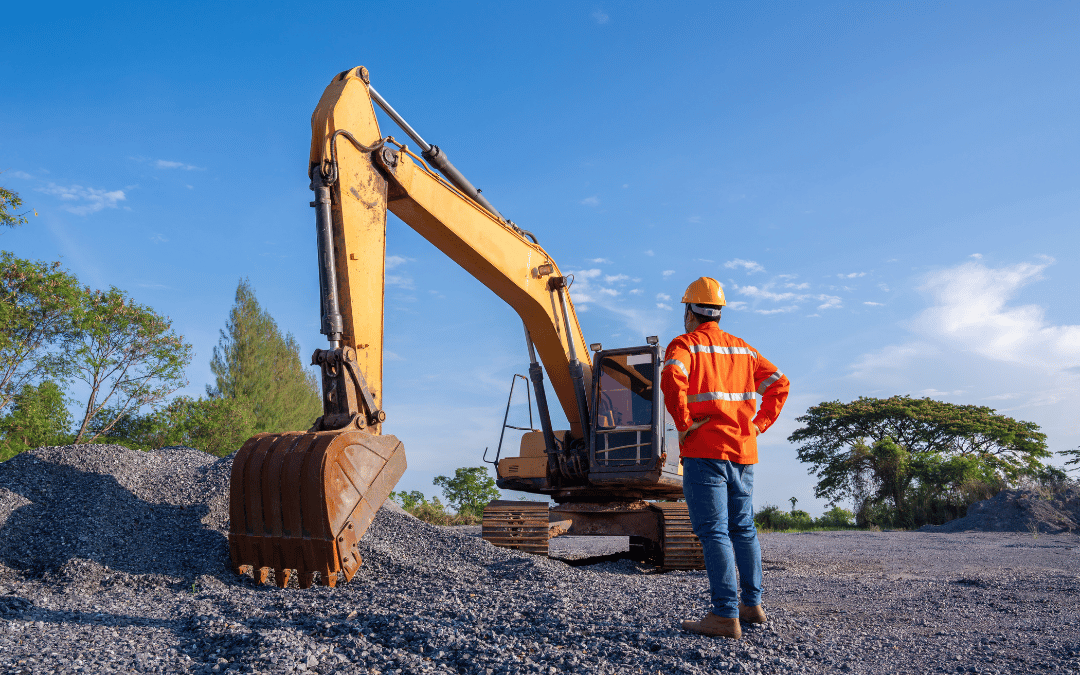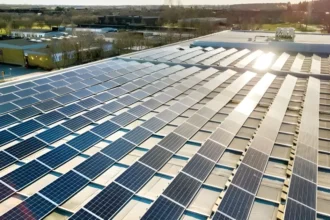When it comes to construction, every impressive structure begins with what lies beneath. Whether it’s a commercial development, a new home, or a large-scale infrastructure project, the foundation is what ultimately determines long-term success. Before any concrete is poured or any steel is raised, excavation sets the stage. And that’s where the role of an experienced excavation contractor becomes not just important, but essential.
Excavation is more than simply moving earth. It is a complex process that requires technical precision, the right equipment, and deep knowledge of soil composition, grading, drainage systems, and safety regulations. In this article, we’ll explore what an excavation contractor does, why their expertise is crucial, and what to consider before hiring one for your next project.
Understanding the Role of an Excavation Contractor
An excavation contractor specializes in site preparation, grading, trenching, and digging to prepare land for construction or other purposes. While the term might sound broad, their job is specific, technical, and fundamental to ensuring the safety and longevity of any structure.
Their services often include:
- Site preparation: Clearing land of trees, rocks, old foundations, or other obstacles.
- Trenching and grading: Creating trenches for utilities and leveling land to prevent drainage issues.
- Foundation excavation: Digging out areas where basements, crawl spaces, or building footings will be installed.
- Backfilling: Refilling excavated areas once structural components are in place.
- Erosion control and drainage: Ensuring the land drains properly to prevent water damage to structures.
These tasks may seem simple on the surface, but they require careful planning and execution to avoid costly mistakes.
Precision and Safety: The Hallmarks of a Skilled Excavation Contractor
Excavation work comes with its fair share of risks. Underground utility lines, soil instability, improper grading, or ignoring drainage requirements can lead to serious problems. A qualified excavation contractor mitigates these risks by using their technical skills, proper equipment, and understanding of local building codes and safety regulations.
They know how to:
- Read and interpret construction blueprints
- Use laser-guided equipment for precision grading
- Coordinate with surveyors, architects, and engineers
- Ensure compliance with Occupational Safety and Health Administration (OSHA) regulations
- Identify potential hazards before they become serious issues
Hiring a professional rather than attempting a DIY approach or hiring an unlicensed operator is often the difference between a smooth project and one riddled with delays and added costs.
The Importance of Equipment and Technology
Modern excavation contractors invest in specialized machinery designed for different types of projects. These include:
- Excavators: For large digging projects, demolition, or heavy lifting.
- Backhoes: Smaller and more versatile, often used for digging or moving materials.
- Bulldozers: Ideal for grading and clearing land.
- Skid-steer loaders: Compact and maneuverable, perfect for tight spaces.
Advanced contractors also use technology such as GPS systems, drones, and 3D modeling to enhance accuracy and efficiency. These innovations help reduce errors, lower labor costs, and speed up project timelines.
Excavation for Residential vs. Commercial Projects
While the core principles of excavation remain the same, residential and commercial projects differ significantly in scope, scale, and complexity.
Residential Excavation
Homeowners may need excavation for a variety of reasons:
- Building a new house or garage
- Installing a swimming pool
- Adding a basement or crawl space
- Landscaping or grading to improve drainage
For these smaller-scale jobs, excavation contractors need to be particularly careful not to disturb neighboring properties, utility lines, or landscaping features.
Commercial Excavation
On the commercial side, excavation projects are typically much larger and involve extensive coordination. These projects may include:
- Office buildings and industrial facilities
- Parking lots and roadways
- Municipal infrastructure
- Large-scale landscaping or environmental remediation
Commercial jobs often require more equipment, crew members, and planning. They also tend to be more strictly regulated and inspected.
Choosing the Right Excavation Contractor
Whether you’re building a small home or a multi-million-dollar facility, selecting the right contractor is crucial. Here are some tips to help you make an informed decision:
1. Experience and Reputation
Choose a contractor with a proven track record in the type of work you need. Ask for references, view past projects, and read reviews. An experienced team is more likely to anticipate and solve problems before they escalate.
2. Licensing and Insurance
Ensure the contractor is fully licensed and carries liability and workers’ compensation insurance. This protects you from legal or financial liabilities in case of an accident or damage.
3. Transparent Bidding and Estimates
Reputable contractors provide detailed, transparent quotes that break down labor, equipment, materials, and timelines. Beware of vague estimates or bids that seem unusually low.
4. Knowledge of Local Regulations
An experienced excavation contractor understands local zoning laws, soil requirements, and permit processes. They can help you navigate bureaucratic red tape more smoothly.
5. Communication and Project Management
Good communication is key. Your contractor should keep you informed, answer questions, and provide progress updates. Timely responses and clear documentation are signs of a well-managed business.
Environmental Responsibility and Excavation
As sustainability becomes increasingly important in the construction industry, responsible excavation contractors are adopting environmentally friendly practices. These include:
- Reducing runoff and erosion
- Recycling removed materials like concrete, rock, and topsoil
- Preventing contamination of nearby water sources
- Minimizing disruption to surrounding ecosystems
Contractors who follow best practices in environmental management help ensure that construction doesn’t come at the cost of damaging the land.
Common Pitfalls to Avoid During Excavation
Even with a skilled team, excavation can run into challenges. Some common issues include:
- Unexpected obstructions: Hidden rocks, debris, or old foundations can slow progress.
- Weather delays: Heavy rain can flood excavation sites or destabilize soil.
- Soil instability: Poor soil conditions can require additional reinforcement or design changes.
- Improper drainage: If not properly planned, water pooling can damage foundations.
Hiring an experienced excavation contractor reduces the likelihood of these issues and ensures quick solutions when problems do arise.
Long-Term Value of Proper Excavation
Many people underestimate the importance of excavation, viewing it as just the “dirty work” that needs to be done before the real construction begins. However, poor excavation can lead to:
- Cracks in foundations
- Flooding or water damage
- Uneven settling or structural instability
- Drainage problems
By investing in a qualified excavation contractor from the start, you’re not just buying a service—you’re investing in the future safety, durability, and success of your entire project.
Final Thoughts
Whether you’re building your dream home, expanding a commercial space, or launching a new development, your project starts with the ground beneath your feet. A skilled excavation contractor plays a pivotal role in turning raw land into a build-ready site, managing risks, enhancing safety, and laying the groundwork for success.
Take the time to vet your options, check credentials, and hire someone who understands both the technical demands and the bigger picture. When the foundation is strong, everything that follows has a better chance to stand tall—literally and figuratively.

















